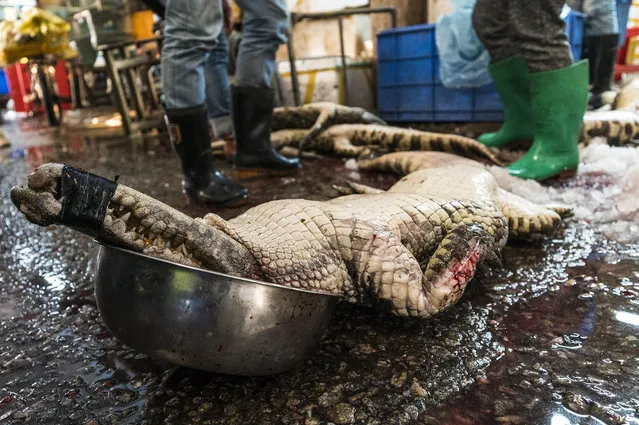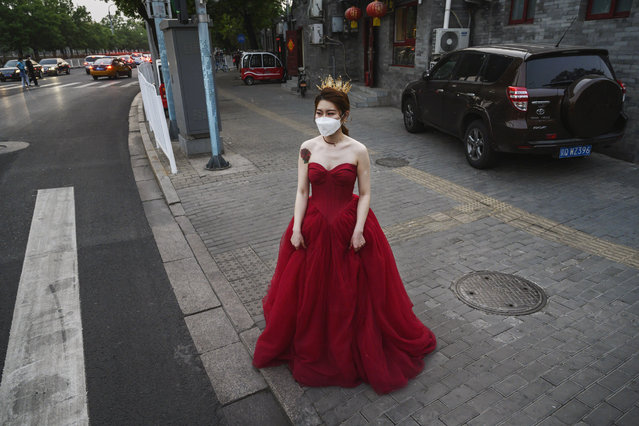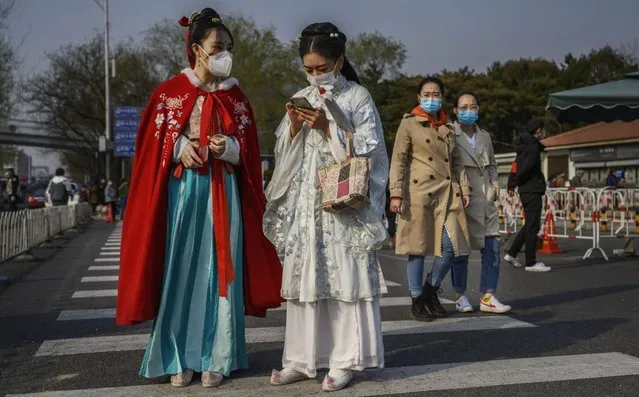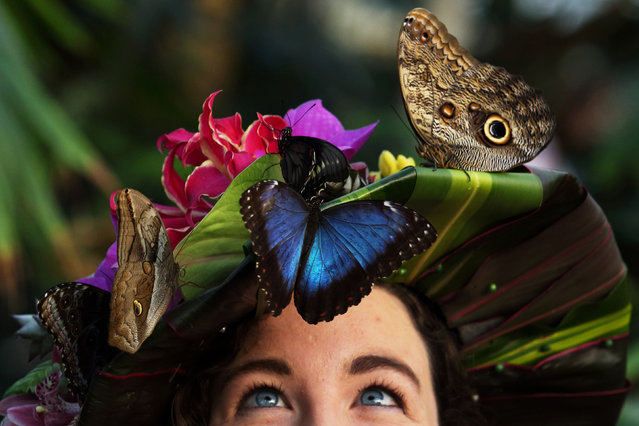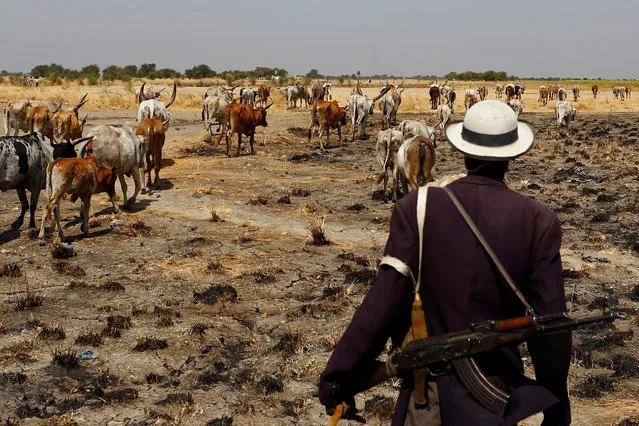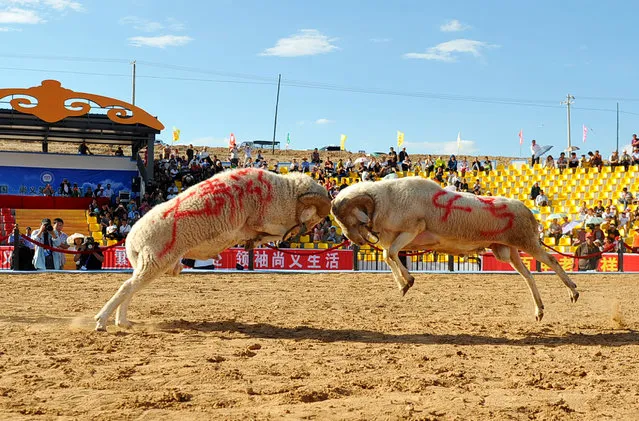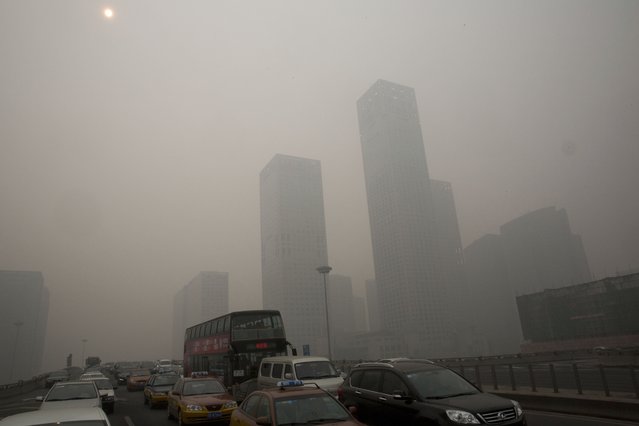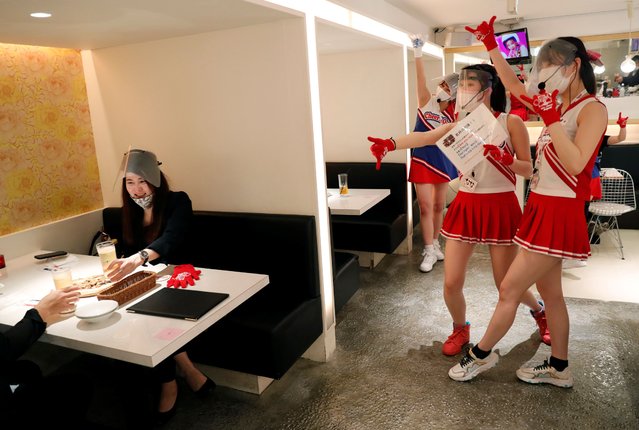
Waitresses wearing protective masks, face-shields and gloves to prevent infections following the coronavirus disease (COVID-19) outbreak, gesture to customers toasting glasses at the cheerleader-themed restaurant “Cheers One” in Tokyo, Japan on May 11, 2020. (Photo by Kim Kyung-Hoon/Reuters)
18 May 2020 00:03:00,post received
0 comments

